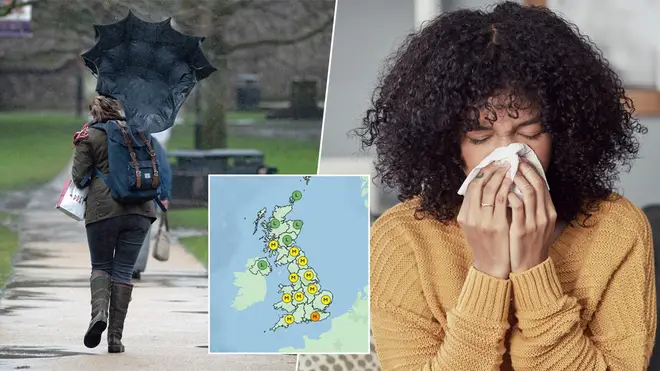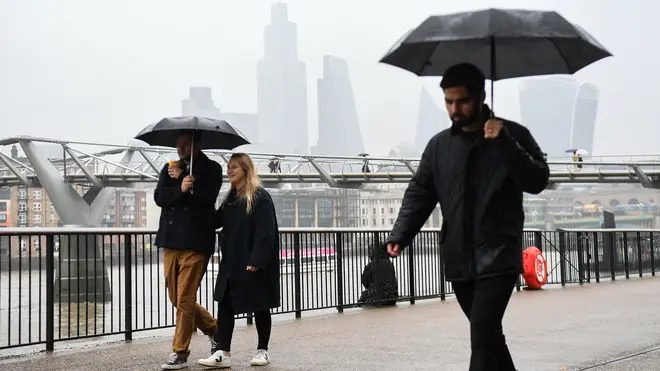Warning to hay fever sufferers as week of thunderstorms could spark ‘pollen bomb’
11 May 2021, 08:20 | Updated: 11 May 2021, 08:23

There are currently high levels of pollen circulating in the South of England.
It’s bad news for hay fever sufferers, because stormy weather could bring a ‘pollen bomb’ to the UK this week.
With a very wet and windy few days ahead, the high pollen count in the South of England is expected to continue until at least Thursday.
London could even see high levels of tree pollen circulating until the weekend.
While hay fever is often associated with warm and dry weather, the Met Office explains why it can also affect people during a thunderstorm.

They explain: "During a thunderstorm¸ high humidity can split pollen grains, releasing a higher density of pollen into the surrounding air.
Read More: Brits set for SCORCHER of a summer with temperatures reaching 25C in a matter of weeks
"Any rainfall causes a marked decrease in pollen concentration in the air, but the time and amount that it rains during the day is very important.
"Early, heavy and prolonged rain is likely to keep counts low all day whereas rain in the afternoon will have less of an impact."
As for the North, pollen levels will fall throughout the week, while it will stay low in Scotland.

The Met Office Explain Exactly What A UK Heatwave Is
The weather is looking very unsettled, with showers expected across southern England and Wales on Tuesday (May 11), developing further north through the day.
There will be more sunny spells and heavy showers on Wednesday, with hail and thunder across northern parts and more persistent rain arriving across southern England later on in the day.
The BBC’s forecast from May 13 to May 22 says: "Low pressure will stay close to the UK over the next few days keeping things unsettled.
“On Thursday, areas of cloud and heavy showers will develop across the UK, with southwestern areas likely to see the best of any sunshine.
“Further showers are expected on Friday, with a chance of evening rain in the southwest. Saturday looks to be another day of showers and sunny spells.”

Cute moment McFly’s Harry Judd and pregnant wife Izzy tell their children they are pregnant
What is hay fever?
Hay fever occurs when the body makes allergic antibodies (IgE) to certain substances, such as pollen, house dust mites or mould.
According to Allergy UK, Grass pollen is the most common allergen, but tree and weed pollens can also cause the allergic reaction.
Symptoms include:
- sneezing and coughing
- a runny or blocked nose
- itchy, red or watery eyes
- itchy throat, mouth, nose and ears
- loss of smell
- pain around your temples and forehead
- headache
- earache
- feeling tired
While there is no cure for hay fever, there are some things sufferers can do to relieve symptoms.
Experts advise you apply an effective allergen barrier balm around the edge of each nostril to trap or block pollens and other allergens on days with high pollen counts.
Showering after you have been outside to wash pollen off, keeping windows and doors shut as much as possible and vacuuming regularly can also help.
Find out more on the NHS website.
Now Read: All the businesses allowed to open on May 17 in England - and those which must stay shut






















